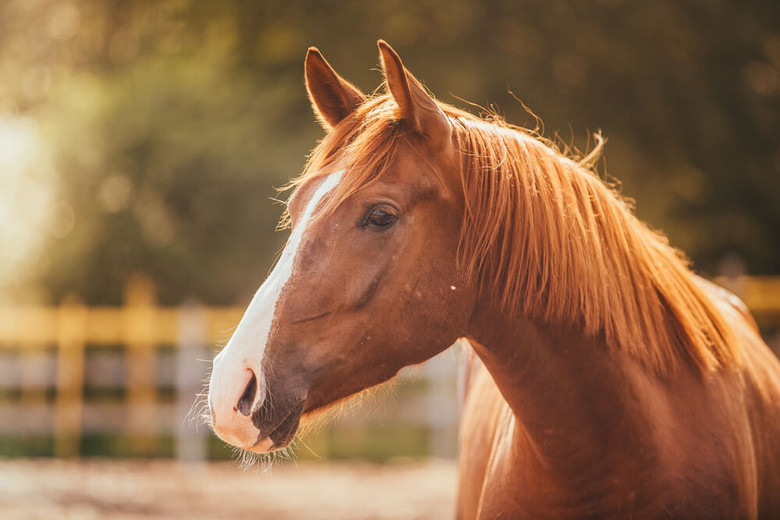Caring For Your Horse In The Summer Months
Posted by Country And Stable US on 8th Aug 2017
Caring For Your Horse In The Summer Months
As temperatures soar and the level of humidity increases, the heat can really take its toll on horses in the summer months. In these kinds of conditions, it’s important to undertake the right measures to keep your horse comfortable and care for them in the summer months.
Whether you’re a novice to the world of horses, considering buying a horse of your own, or a seasoned owner wanting a quick refresh, here at Country and Stable we have pulled together some important factors to remember when it comes to looking after your horse in the summer.
Appropriate feed in the summer months...
Just like ourselves, horses need protection in the summer months as well as extra care given to ensure they are well hydrated and fed correctly. Depending where you live, in the months between May and September the climate is likely to be hotter and more humid. With this in mind, it is important that you adapt your horse's diet appropriately.
In the summer months, cut back on high fibre feed containing oats and corn as these kinds of food sources actually produce more heat for the horse through their digestion. Instead, favour your horse pasture grazing or directly feeding them grass and hay as part of their diet during this time.
It is crucial that you introduce these changes slowly in the run up to high summer as sudden differences in diet can cause colic. Once you adapt your routine, feed your horse smaller amounts throughout the day to lower their caloric intake. This is a much more efficient way of feeding your horse in the summer as opposed to larger less frequent meals as it ensures that the digestive process is spread out.
Hydration for your horse...
It may seem obvious, but in the summer months it is easy to forget that, if your horse is outside, it is exposed to the heat, humidity and beating sun. In these adverse climates, dehydration is a worrying issue and loss of fluid can cause colic.
If your horse is out to pasture, we recommend, where possible, saturating a section of your land as this will help your horse get more water for extra hydration.
In worse case scenarios, extreme dehydration can lead to death, and it is therefore important to give your horse plenty of clean, fresh water. Horses require 10-15 gallons of water and we recommend regularly ensuring their trough or bucket is full. Don’t forget! These water containers can get dirty pretty quickly, so ensure that you properly maintain them.
To further prevent unnecessary dehydration, in addition to the new feed approach, try introducing salt licks and electrolyte infused water. These will help replace the salts and electrolytes lost through sweating in the adverse hot weather. Position a salt lick near your horse’s feed and water to encourage them to engage with it. You could even spray their hay with salt water if your horse doesn’t seem to be entertaining the salt lick or electrolyte-infused water.

Shade and exercise…
It goes without saying, that in the summer months your horse will require shade to cover themselves from the beating sun as horses too can get sunburn, especially white horses or those with white socks and pink noses. The shade can offer a comfortable drop in a few degrees, so where possible, try to move your horse out of the midday sun until the temperature drops. If your horse is a working animal, lighten the load and stick to shorter working sessions. We recommend sponging your horse down with cool water after each session.
Ensure that your horse is not out on the land wearing tack for lengthy periods of time. If you’re out riding in the sunshine, your horse will need to be wearing less padding under the saddle in order for their bodies to stay cool. We also recommend choosing to head out on a hack when the heat has subsided a little, maybe in the early evening.
Pests and environmental factors…
Flies can be particularly irritating in the summer months and can cause a lot of distress to your horse. A fly mask and fly sheet not only helps with keeping insects at bay, but also works as a brilliant sun protectant in the summer shading your horse's sensitive eyes, ears and body from UV rays. Here at Country & Stable we stock a wide range of fly masks and fly sheets to fit just about every size horse. If you’re still unsure, we have created a comprehensive guide to fly masks to understand why you need a fly mask and how to fit one effectively.
Signs of heat distress…
Sometimes even with the best intentions, heat stress in horses can happen, here at Country and Stable we have put together a in-depth guide on recognising and dealing with heat stress. Remember, whether your horse is a much loved pet, or a working animal, just like yourselves they must be protected from the elements.



